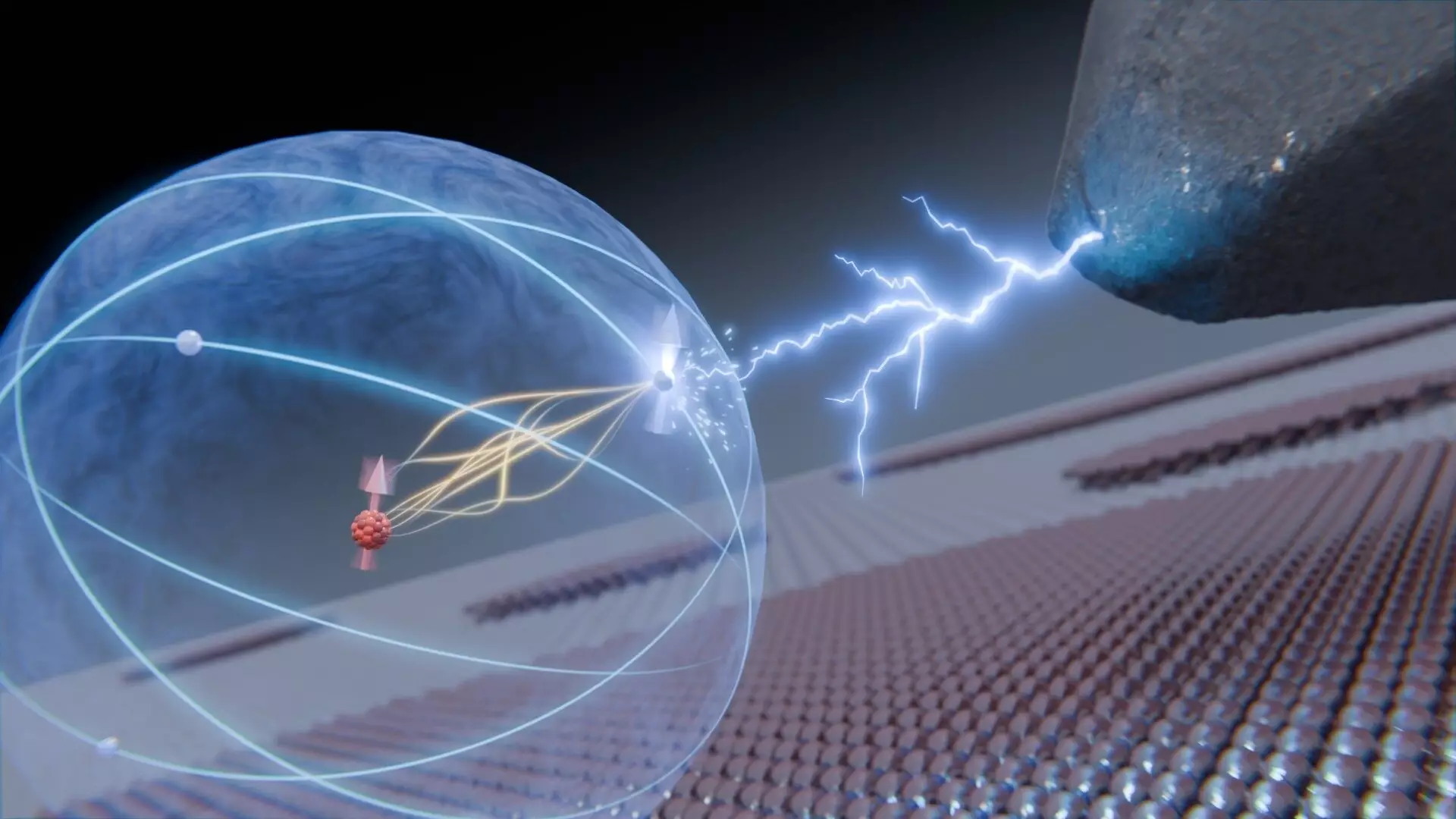Recent advancements in quantum physics have brought forth a groundbreaking study conducted by researchers at Delft University of Technology, which illuminates the potential for controlling atomic nuclei. Their meticulous work centers on the ability to maneuver the spin of atomic nuclei, providing a promising avenue for the storage and processing of quantum information. This development inadvertently places quantum computing on a trajectory toward enhanced security and efficiency, a paradigm shift that could redefine how data is stored at the atomic level.
The focus of this groundbreaking research was a specific isotope, Titanium-47 (Ti-47), notable for possessing one less neutron than its more abundant counterpart Ti-48. The Ti-47 nucleus exhibits a unique magnetic property, rendering it slightly magnetic—a feature instrumental for manipulating quantum states. According to Sander Otte, the principal investigator, this magnetic property, or spin, acts akin to a compass needle, indicating various directions. The alterations in its orientation could signify distinct pieces of quantum information, thus enhancing data storage capabilities.
This research unraveled the intricate dance between the nucleus and the electron in the atom’s outer shell. The nucleus remains ensconced in a vast void, separated from the surrounding electronic activity, yet remains subtly influenced by the weak hyperfine interaction with the outer electron. Lukas Veldman, who extensively studied these interactions for his Ph.D., notes the daunting challenge posed by the hyperfine coupling’s inherent weakness. The precise tuning of magnetic fields is crucial for leveraging this interaction effectively.
To achieve the desired controlled movement, a carefully calibrated voltage pulse was applied, which disrupted the electron’s spin equilibrium, inducing a synchronicity between the electron and nuclear spins for a fleeting moment. This alignment, as predicted by quantum theory, opened up new avenues for quantum state manipulation.
An essential finding of the study is the robust maintenance of quantum information throughout the interaction. The researchers verified that the interaction between the nuclear spin and the electron did not lead to any loss of information, a major hurdle often faced in quantum systems. The ability to harness nuclear spins for stable quantum information storage indicates that these nuclei could act as secure safeguards against environmental disturbances, a critical advantage for the development of more resilient quantum systems.
While the practical applications of this research are still in their infancy, the implications are significant. Otte suggests that this work transcends mere technical achievement; it embodies humanity’s capacity to influence the very fabric of matter at an unprecedented scale. As we delve deeper into understanding atomic interactions, the potential to revolutionize information technologies becomes ever more tangible, leading to groundbreaking advancements in quantum computation and secure communication methodologies. The future beckons with possibilities that challenge our fundamental understanding of data and processing, promising a new epoch defined by quantum mastery.


Leave a Reply